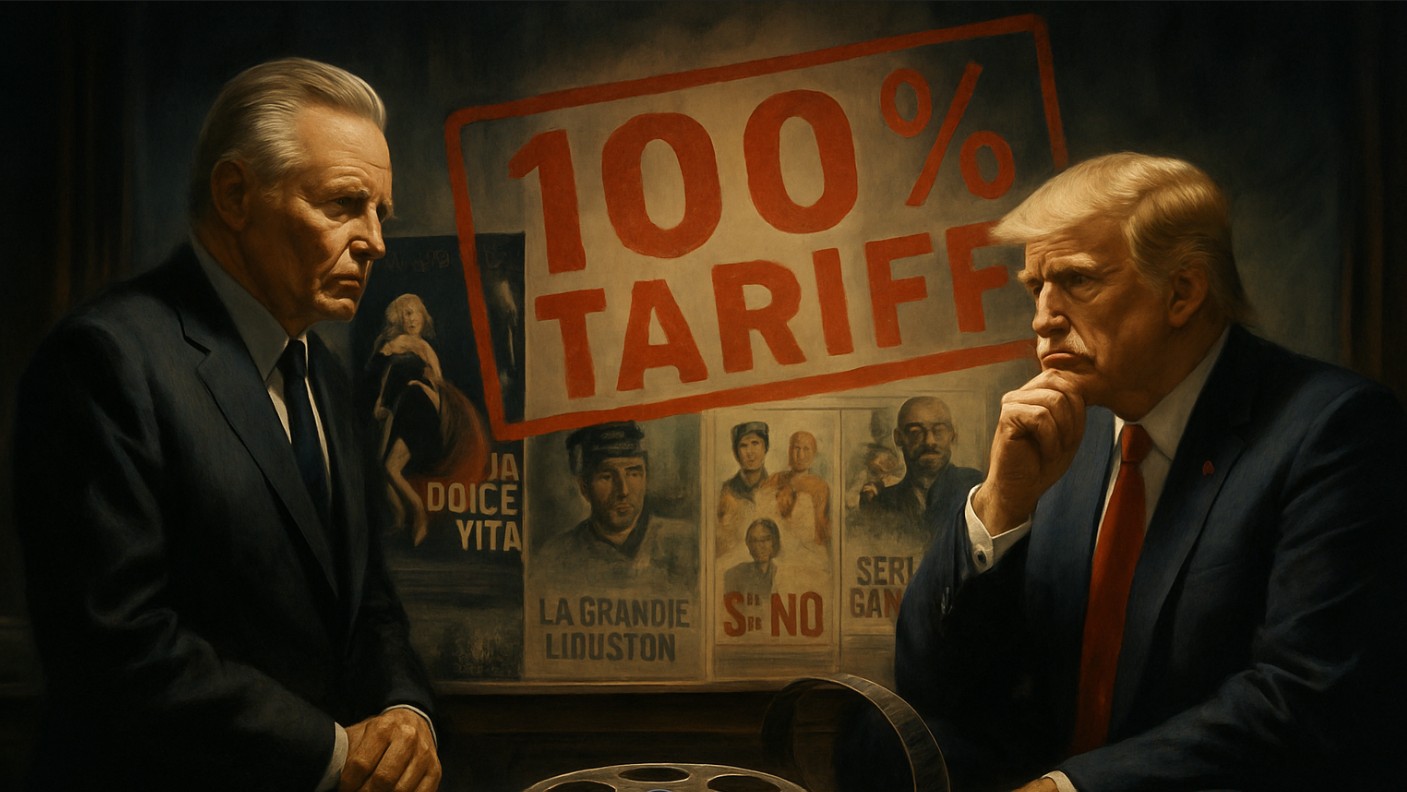
The Backstory: A Hollywood Plot Twist in Washington
It’s not every day that a policy proposal with the power to upend the global film industry comes from a Hollywood legend.
Yet, in a move that feels more like a fever dream than a Beltway briefing, President Donald Trump announced plans to slap a 100% tariff on all foreign-made movies—a plan reportedly inspired by none other than Academy Award-winner Jon Voight, a longtime Trump ally and, one of his handpicked “special ambassadors” to Hollywood.
On Sunday night, Trump took to Truth Social to declare, “The Movie Industry in America is DYING a very fast death. Other Countries are offering all sorts of incentives to draw our filmmakers and studios away from the United States. Hollywood, and many other areas within the U.S.A., are being devastated. This is a concerted effort by other Nations and, therefore, a National Security threat.” He then authorized the Department of Commerce and the U.S. Trade Representative to begin the process of instituting a 100% tariff on any and all movies produced abroad.
The idea, according to multiple reports, was pitched directly to Trump by Voight, who has been lobbying for aggressive action to “save” Hollywood from what he and Trump see as a foreign onslaught.
The Voight Connection: From Red Carpet to Policy Room
Jon Voight’s role in this saga is more than just a celebrity cameo. Since being named a “special ambassador” alongside Mel Gibson and Sylvester Stallone, Voight has been quietly meeting with union leaders, studio executives, and even state lawmakers. According to California State Senator Ben Allen, Voight reached out to discuss the possibility of new tariffs just days before Trump’s announcement.
It’s a rare case of Hollywood’s political activism running in the opposite direction—rather than pushing for progressive causes, Voight is advocating for protectionist measures that would fundamentally reshape the economics of global filmmaking. I can’t help but recall a conversation I had with a veteran producer last year, who joked that “the only thing that could unite Hollywood and Washington is a shared sense of existential panic.” Turns out, he wasn’t far off.
The Rationale: National Security or Nostalgia?
Trump’s justification for the tariff is a blend of economic anxiety and culture-war rhetoric. He frames the exodus of film production as a “national security threat,” citing foreign tax incentives and lower labor costs as the villains luring American jobs overseas. The numbers, however, tell a more nuanced story. According to the Motion Picture Association, the U.S. film industry still generates a positive trade balance, exporting far more than it imports.
But the pain is real for many below-the-line workers. The International Alliance of Theatrical Stage Employees estimates that 18,000 full-time jobs have vanished in the past three years, mostly in California. As one union official put it, “We’re allowing California to become to the entertainment industry what Detroit has become to the auto industry.”
The Fallout: Confusion, Criticism, and Global Shockwaves
The announcement has left Hollywood—and much of the world—scrambling for answers. Studio executives are reportedly “scrambling to find out what POTUS wants,” as Deadline put it, while the Motion Picture Association has declined to comment. The details are murky: Would the tariff apply to American studios filming abroad? To streaming content? To films partially shot overseas? No one seems to know BBC.
International reaction has been swift and alarmed. The UK’s film union Bectu warned the tariff could be a “knock-out blow” to the global industry, while Australia and New Zealand’s governments have vowed to defend their screen sectors. There’s also the specter of retaliation: other countries could slap their own tariffs on U.S. films, threatening the international box office that Hollywood increasingly relies on.
And then there’s the economic reality. As one economist quipped, “As far as I can tell, the rationale for Trump’s deranged new tariffs on movies is that he has learned that folks in other countries compete for business, and he doesn’t like it. Wait until he hears about… every single other sector in the economy.”
The Big Picture: A Hollywood Ending, or Just the First Act?
For all the bluster, it’s not clear whether Trump’s plan will ever become law. The White House has already signaled that “no final decisions on foreign film tariffs have been made.” Legal experts point out that tariffs on services—like movies—are far more complicated than those on physical goods, and the World Trade Organization currently has a moratorium on digital goods through 2026.
Still, the episode is a vivid reminder of how the lines between entertainment and politics have blurred beyond recognition. In a world where a Hollywood actor can shape White House policy, and a former president can upend a global industry with a single social media post, the only thing that seems certain is uncertainty itself.
As I watched the news break, I couldn’t help but think of the old Hollywood adage: “Nobody knows anything.” In 2025, that feels truer than ever.
